Who has the moral authority to negotiate the UK’s exit from the European Union? The General Election has failed to deliver a mandate to any one party, and although Conservatives and Labour are both committed to seeing Brexit through, there is an absolute lack of agreement or even clarity about the terms. As support grows for a cross-party approach to Brexit, we make the case for the formation of a Brexit Citizens’ Assembly to directly gather the views of those who matter – the people.
Direct and representative democracy are not enough
What is the best way to take decisions about controversial political questions? A referendum or parliamentary debate? Direct or representative democracy?
This is a false choice.
It ignores the importance of the quality of the debate that leads up to the decision. Both these forms of democratic decision-making are important but we argue that we need to add a third – deliberative democracy involving citizens.
There is recent precedent for this kind of initiative – in Ireland, a citizens’ convention broke a political stalemate around same-sex marriage, a subject on which citizens held passionate and firm views.
A group of 66 randomly selected citizens worked with 33 politicians and an independent chair to consider the arguments for and against same-sex marriage (and a number of other issues). They heard the testimony of witnesses and deliberated among themselves, all carried out openly in the public eye.
In the end they recommended that same-sex marriage be legalised, and the subsequent referendum in May 2015 resulted in a 62% vote in favour of the change versus 38% opposed.
Although there are still critical voices against same-sex marriage, the important point is that the decision has felt settled in a way that would have been unlikely had it gone straight to a referendum without prior public debate and citizen deliberation.
There is not necessarily a consensus, but there is consent.
And no one is calling for a second referendum.
Especially for complex questions
Same-sex marriage was a question of great moral, religious and political complexity, but at least the question itself was very simple. You know what “Yes” and “No” look like.
But the EU referendum was a complex question. We knew what “Remain” would look like, because there would have been no change to the status quo. However, there was, and still is, no single unifying vision of what “Leave” looks like.
This is the mess we now find ourselves in.
To illustrate the point, consider the quick poll we carried out of our Citizens’ Economic Council members on 3rd June. We asked them to select up to three factors that were important considerations in their vote, whichever way they voted. No single factor was present in more than half of the citizens’ top concerns.
Despite the locations of the council – London and Manchester – being heavily weighted towards Remain, there was no consistency among the demographically diverse group about the reasons for their decision.
There are four ways in which a Brexit Citizens’ Assembly could contribute to a better Brexit:
- Understanding why - which way people voted (particularly given how close the vote was – 52% to 48%) tells us very little about what they actually thought – but asking them the question as to why they voted might help better inform the kind of Brexit we are looking at.
- Managing trade-offs and setting priorities – in negotiating a new relationship with the EU, there are many trade-offs and compromises to be made. The Assembly would allow these to be explored instead of being captive to the particular obsessions of the politicians charged with conducting the talks.
- Reconciling winners and losers – it’s easy to say that someone else should pay when they are not in the room. Having a broad range of ordinary citizens would ensure that when a proposal is likely to particularly benefit, or harm, certain groups their voices will be heard directly in the discussion. This should contribute to the likelihood that the final outcomes gain more widespread consent because the process will be considered fairer than one driven by whoever has the loudest voice (or deepest pockets).
- Legitimacy and transparency - We argue that the transparency of this process would strengthen the legitimacy of British negotiators in Brussels, and help them get a more mutually beneficial deal with the EU. It would also attract more attention from ordinary citizens across Europe than the back-room dealings of the Westminster political class ever will.
How could the Brexit Citizens’ Assembly work?
We suggest convening an assembly of 99 citizens selected to mirror the demographic make-up of the UK. They should be paid for their time, either by their employer allowing them additional leave as is the case with jury service, or in the case of the self-employed by paying compensation for loss of earnings.
The citizens could sit for a total of 20 days (ordinary jury service is for 10 days) spread over several months.
The early stages would allow the citizens to determine the priority areas for deliberation, and the dialogue could acknowledge that some individuals, groups and communities may be particularly hard-hit by Brexit. For example, examining the implications of withdrawal from the Common Agricultural Policy and ways to ensure the longer-term sustainability of British food and farming.
The Assembly would be supported by a professional secretariat seconded from different government departments, and it would be able to call on expert witnesses to give testimony on the issues that citizens wish to examine in more detail.
It is important too that citizens are given personal support through the process, given that they will inevitably be in the public eye and may therefore experience media and personal attention they are unused to in everyday life.
Finally, the expansion in the range of different online deliberation tools now available could allow a much greater number of citizens to participate in well-facilitated online debate where, unlike the social media echo-chamber, abusive behaviour is prevented or called out and citizens are led to engage meaningfully with people who think very differently from them.
The people have spoken, but what did they say?
One of the most notorious election concession speeches of all time is attributed to American political strategist and prankster, Dick Tuck. He ran for the Californian State Senate in 1966 with a campaign bearing more in common with Lord Buckethead than his serious political opponents.
When it became clear that the inevitable had happened and that he would not win the seat, he declared “The people have spoken, the bastards.”
One might forgive the current occupants of Parliament, Whitehall and European institutions for secretly feeling the same way.
How are we to interpret the result of the General Election? Indeed how are we to interpret an unexpected EU referendum result so narrowly in favour of taking a step into the unknown?
The people have spoken, but what did they say?
Our view is simple. Democracy is not just about asking citizens the question.
It’s not even about leaders having the humility to listen carefully to the answer (although that would certainly help).
It’s also about creating a healthy, respectful, informed societal debate.
One in which citizens are not just the audience, they are also the primary participants.
Related articles
-
The public are ready to go further and faster on net zero
Anthony Painter
The public are ahead of policy-makers and, indeed, most of the business world. COP26 is an enormous opportunity to catch up. Global leaders should take it.
-
Can progressives ever stop the in-fighting?
Matthew Taylor
Biden's victory has caused the left and moderates to fracture again.
-
Can President Biden bring America together again?
Anthony Painter
There is a long road ahead for the new president.
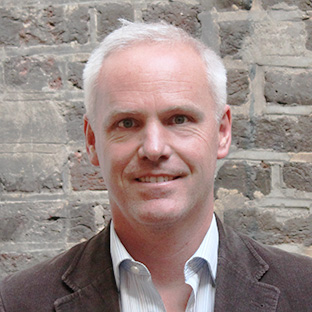
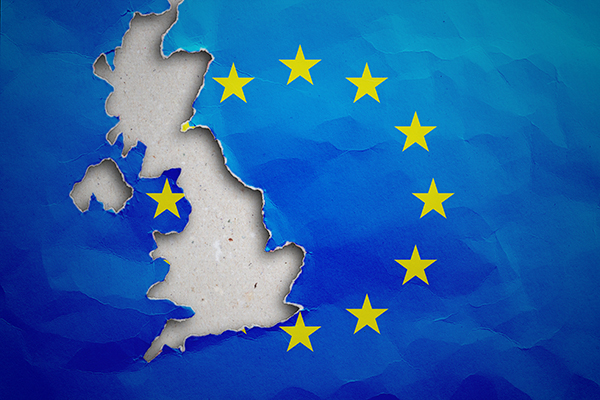
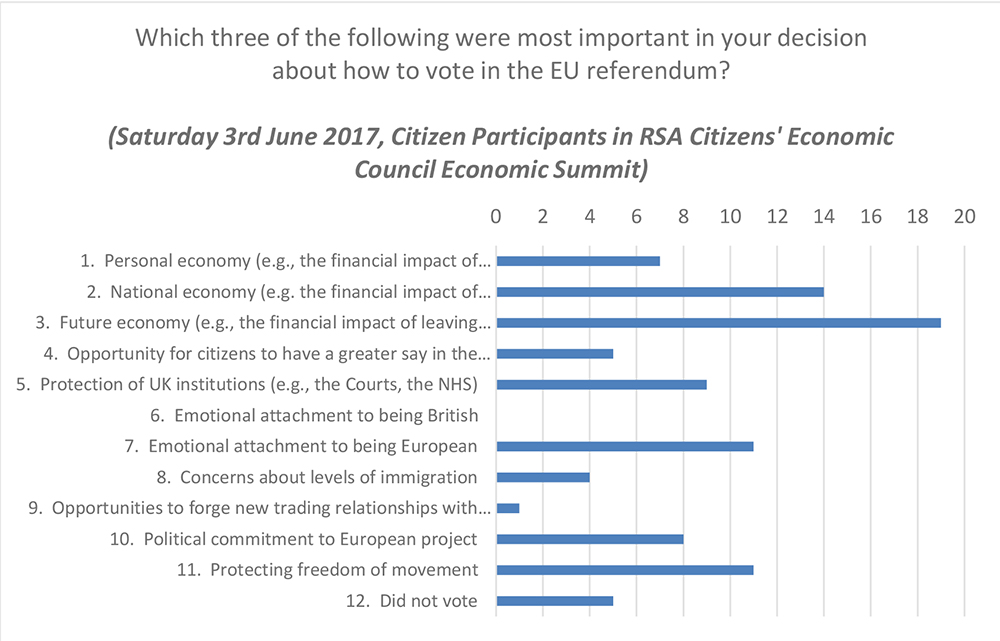
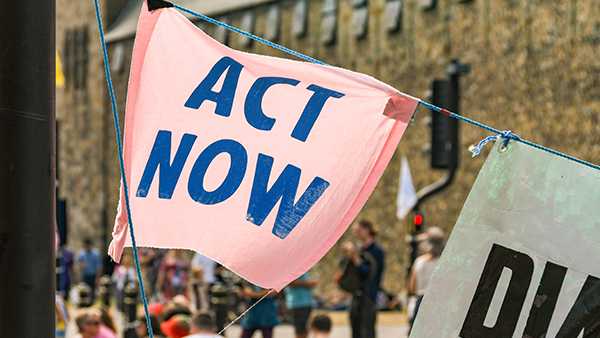
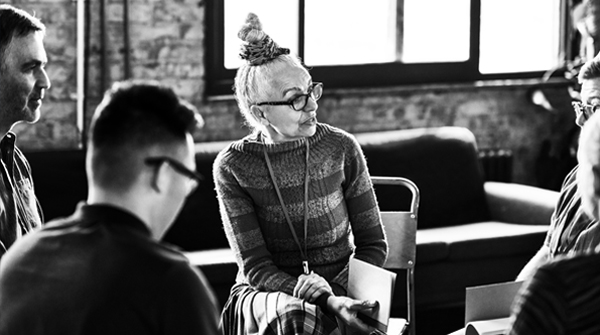

Join the discussion
Comments
Please login to post a comment or reply
Don't have an account? Click here to register.
A brilliant idea but who will appoint the Brexit Citizen's Assembly?
More importantly, will the current political stakeholders who have hijacked Brexit for their own purposes be willing to give ground?
If the conversations that are recorded in Yanis Varoufakis's latest book are to be believed those who have influence over the terms of the UK's Brexit from a European point of view have no interest in any electoral or democratic input. Michael Neill has commented that M.Barnier has said that Brexit meant leaving both the customs union and the single market. Guy Verhofstadt has also clearly stated that if the UK were to ask to return to the EU, there would be no rebates and the terms and conditions would be very different. given his tone of voice, one assumes not good. It was clear from the information provided before the referendum what the choice was, but no one will know what the consequences are likely to be, not even the experts. There was a time when Proportional Representation became an electoral issue but everyone chose to continue with first past the post, maybe this could be revisited? For me it was about the fundamental principles of the society and our ability to influence them.
Although 86% of all votes cast in the general election were for pro-Brexit parties, and the only 'remainer' party, the LibDems, were effectively rejected by electors, and that this would seem on the face of it to be an overwhelming confirmation of support for Brexit, I'm sure there is room still to influence aspects of the negotiated outcome.
And although M Barnier somewhat cruelly stated yesterday that Brexit meant leaving both the customs union and the single market, I'm sure the EU would at least read any recommendations from a Brexit Citizens' Assembly.
A Brexit Citizens Assembly; what a good idea. It draws on a well-established tradition ofdeliberative democracy which aims to bring greater depth to the analysis ofcomplex public good issues by getting randomly chosen citizens to thinktogether about them. But who chooses theissues and who will listen to the outcome? In UK local government Citizens Juries have been commissioned by an authorityto look at an issue on behalf of the authority, the authority retaining theresponsibility for heeding or not outcomes and taking decisions. In Brexit there are issues enough but will theMinister for Brexit or anyone else be seeking citizen deliberation on any ofthem?
A thought provokingly sensible idea Tony. After this year in Britain, after one simple question that divided a country, today our barely there government starts negotiations that will take years and impact us for decades. Not sure I trust them
I've been sickened over the last year by how each politician has basically stated "the people have spoken, and it's clear that what they want is <insert my own agenda here>".
The vote was 52%/48%. 2 nations generally voted to Leave, 2 to Remain. The general election has further illustrated the division in the country. The EU are organised and clear. The UK is not. Yet David Davis, alone, essentially has carte blanche to negotiate where we go. So a council of citizens overseeing the process seems eminently sensible. Glad to see the RSA taking the lead on this.
And after seeing his Divided Britain documentary...maybe Grayson Perry could chair it?